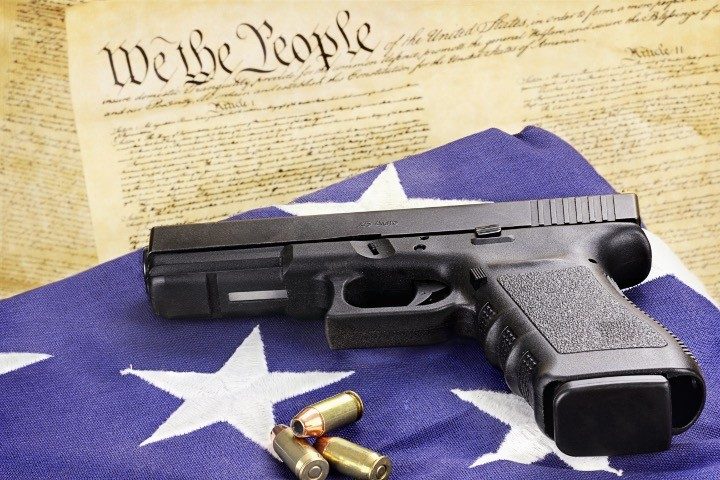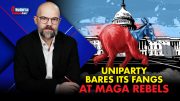
U.S. District Court Judge John Cronan wasn’t fooled by New York City’s attempt to work around the Supreme Court’s ruling in Bruen (New York State Rifle & Pistol Association, Inc. v. Bruen). The nation’s highest court ruled in 2022 that New York state’s “proper cause” requirement to obtain permission to keep and bear a firearm was unconstitutional under both the Second and Fourteenth Amendments to the U.S. Constitution.
So New York City lawmakers changed the language to prohibit one Joseph Srour from obtaining a permit to possess rifles and pistols. They changed it to read that a city official could deny his application if he determined that Srour lacked “good moral character” or for “other good cause.”
Srour applied twice for permission. Both applications were denied. He appealed. They were denied again. He sued the city and its police commissioner, claiming that his rights were violated by those denials, and Cronan agreed:
In sum, having considered Defendants’ proffered historical materials, and applying the standard set in Bruen, the Court determines that the magnitude of discretion afforded to New York City licensing officials … empowering them to evaluate an applicant’s “good moral character” and “good cause” in deciding whether to permit that applicant to exercise his or her Second Amendment rights, is not constitutionally permissible under the Second and Fourteenth Amendments.
Srour is no saint. As the city noted in its first refusal of his request:
The circumstances surrounding your actions exhibited in your past question your ability to abide by the rules and regulations to possess a rifle/shotgun permit….
Based on your prior arrests for [redacted; i.e., various and sundry violations of other laws] you have shown poor moral judgment and an unwillingness to abide by the law.
The above circumstances, as well as your derogatory driving record (twenty-eight moving violations and thirty license suspensions), reflect negatively on your moral character and casts [sic] grave doubt upon your fitness to possess a firearm.
The second refusal recounted his previous violations, including “prior arrests, two criminal court summonses, … twenty-eight driving violations, twenty-four driver license suspension, and six driver license revocations.”
The unnamed, unelected New York City bureaucrat anointed with the discretionary power to deny Srour’s request summarized his case:
The circumstances surrounding Mr. Srour’s two arrests, his failure to disclose his arrests on the Handgun and Shotgun/Rifle Applications, and poor driving history portray a lack of good moral character and disregard for the law.
For all of the reasons stated above, good cause exists to deny his applications and his appeal of the disapproval of [his] Premises Residence handgun license application as well as the Rifle/Shotgun Permit application is denied.
Unfortunately for the City of New York — and fortunately for law-abiding citizens in the Big Apple seeking permission to keep and bear arms as guaranteed under the Second Amendment — the city (“defendants” in this case) has a much different, and much more difficult, standard to meet. There must, under Bruen, be a “historical tradition” of such discretion being granted to an unelected bureaucrat, and lawyers for the city could find nothing to persuade Judge Cronan.
Wrote the judge:
The fatal problem with [the law] continues to lie in the broad discretion afforded to City officials in determining whether someone may exercise their Second Amendment right.
Defendants have not identified any historical analogue for investing officials with the broad discretion to restrict someone’s Second Amendment right based on determining the person to “lack[] good moral character” or for a vague and undefined notion of “good cause.”
And while this Court finds allowing such a discretionary determination to run afoul of the Second Amendment, Defendants have not even identified a historical analogue for the various non-determinative considerations that were required to go into the official’s “good moral character” and “other good cause” assessments under [the law]. [Emphasis added throughout.]
Judge Conan expanded:
Moreover, and as mentioned, subsection (n) of each of those Sections affords tremendous — and seemingly boundless — discretion to the licensing official in making that lack of “good moral character” or “good cause” determination by allowing the official to consider “[o]ther information [that] demonstrates an unwillingness to abide by the law, a lack of candor toward lawful authorities, a lack of concern for the safety of oneself and/or other persons and/or for public safety, and/or other good cause for the denial of the permit.” [Emphasis in original.]
In other words, the offending law not only violates the Bruen standard of “historical tradition,” it also vests virtually unlimited power in the hands of an unelected bureaucrat to rule on Srour’s applications.
That means, according to the judge, that “every time a New York City official denied a rifle or shotgun permit … [or] a handgun license … the official acted pursuant to an unconstitutional exercise of discretion. This makes those provisions facially invalid.” (Emphasis added.)
Here is the core of the matter: Without the Second Amendment, unelected and unnamed bureaucrats would be free to violate precious freedoms at will. And without the Supreme Court ruling that “historical” precedents must validate such incursions, there would be no Second Amendment.
And without a majority of the high court abiding by the “historical” precedent that flows from the doctrine of “originalism” the court now uses, law-abiding gun owners would be forcibly disarmed by the government.
Lest we forget: It was Donald J. Trump, the 45th president of the United States, who nominated the judges who now constitute a majority on the high court. If he did nothing else in his first term, Trump’s legacy will be that of turning the tide in favor of the Second Amendment, and against unnamed bureaucrats who would like nothing better than to disarm the American citizenry.



